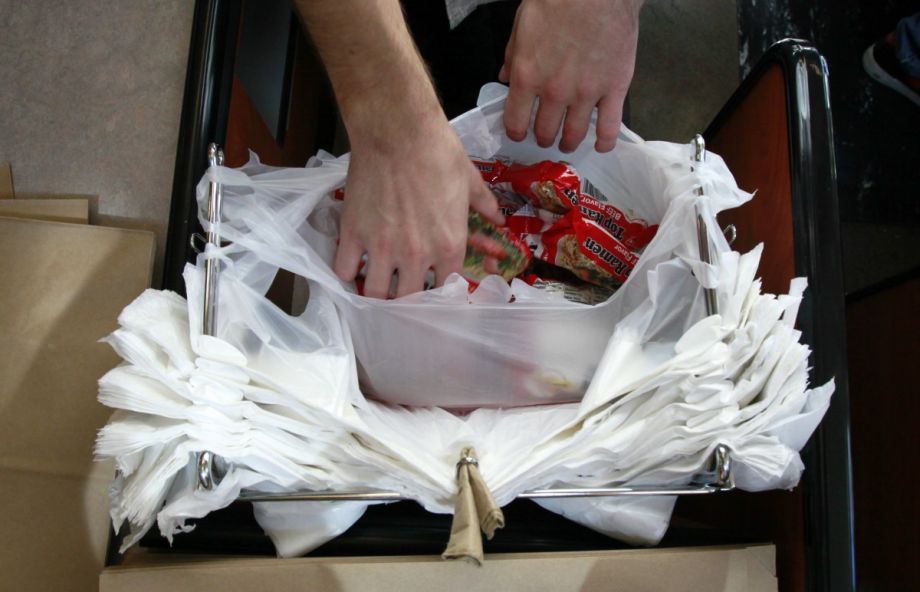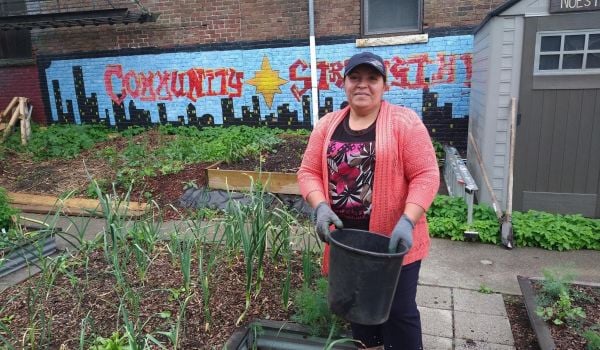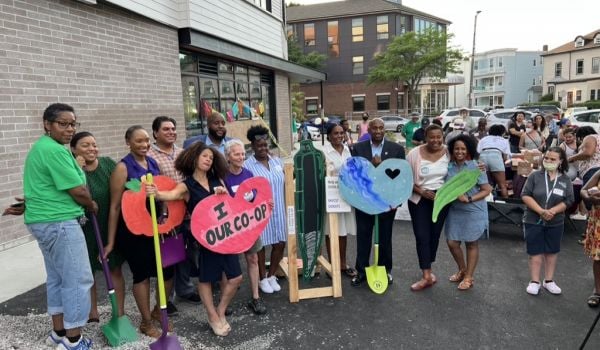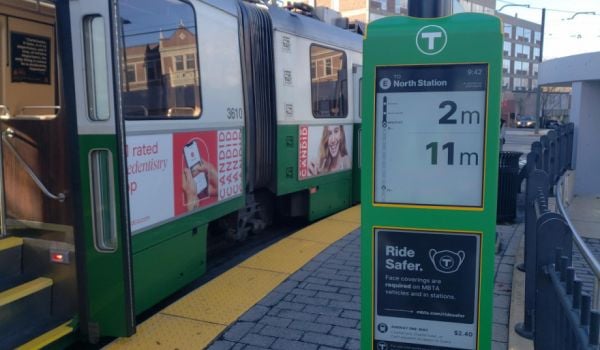The days of the plastic shopping bag are numbered in Boston. On Wednesday, Boston City Council unanimously approved an ordinance that will ban regular plastic bags in grocery stores and charge a 5-cent fee for either a thicker compostable plastic or paper bag, the Boston Globe reports. Mayor Marty Walsh has not yet weighed in on the ordinance, but the council — which passed the ban 11-0 — will likely be able to override him if he vetoes it.
The measure will become effective next fall so that shoppers and stores will have time to prepare.
“The problem is plastic bags,” Councilor Matt O’Malley, the measure’s lead proponent, said before the vote, according to the newspaper. “These plastic bags do not end up in the dedicated recycling bins at your local Whole Foods or Roche Brothers supermarkets. They end up in our streets, in our gutters, tangled up in our wildlife and our marine ecosystem.”
Predictably, industry representatives lobbying for plastic bags had some not-so-favorable things to say about the city’s decision.
“It is a shame that city councilors pushed through a tax that will hit seniors and low-income families the hardest in the middle of the holiday shopping season,” said Matt Seaholm, the executive director of The American Progressive Bag Alliance (which represents plastic bag manufacturers). He called on Walsh to veto the measure.
But although Walsh opposed a ban last year, the bag seems to have already left the supermarket, so to speak. A similar ban is pending before the Massachusetts legislature, and Boston is joining the ranks of 59 other communities across the state and hundreds across the U.S., the Globe reports.
California’s statewide ban turned one in November. As the Los Angeles Times points out, the world did not end, shoppers did not revolt, food still manages to get to people’s homes and reusable bags have not sparked “an epidemic of food-borne illnesses, as some critics suggested they would.”
According to the Times, the ban seems to be cutting down significantly on waste ending up in California’s waterways. In 2017, plastic bags made up 3.1 percent of the litter collected from state beaches on the annual “Coastal Cleanup Day,” as opposed to 7.4 percent in 2010.
Outside of California, smaller communities in New York state and Connecticut are also considering bans.
But once a governing body implements a ban, there’s no guarantee it will stick. As Next City covered in 2015, Dallas City Council reversed its 5-cent charge on plastic bags only months after implementing it. And the small city of Bisbee, Arizona, fell prey to a state preemption law in late October (the attorney general declared the city’s ban unlawful) and began preparing to repeal its law due to threats of lost revenue from the state.

Rachel Dovey is an award-winning freelance writer and former USC Annenberg fellow living at the northern tip of California’s Bay Area. She writes about infrastructure, water and climate change and has been published by Bust, Wired, Paste, SF Weekly, the East Bay Express and the North Bay Bohemian
Follow Rachel .(JavaScript must be enabled to view this email address)
















